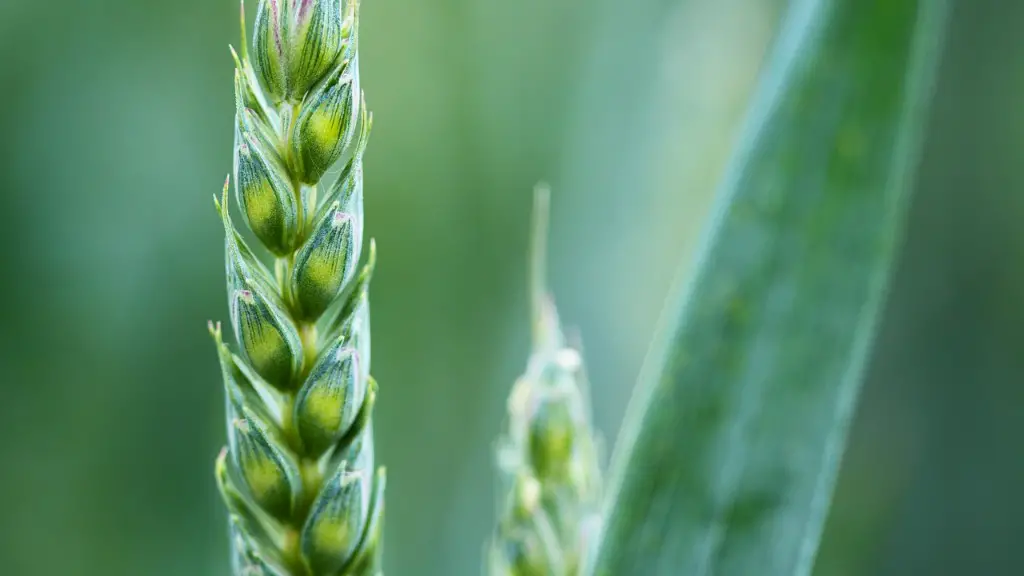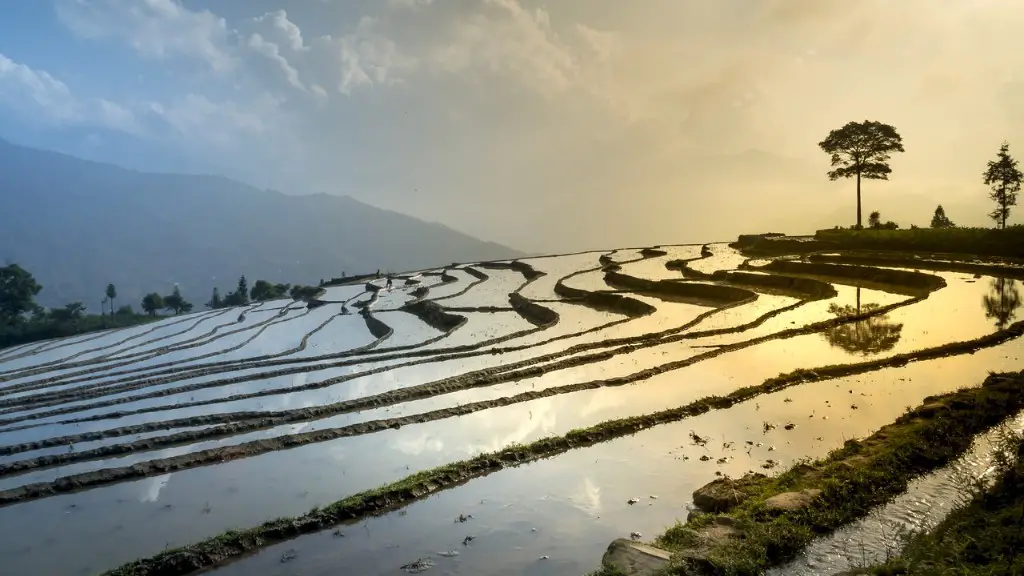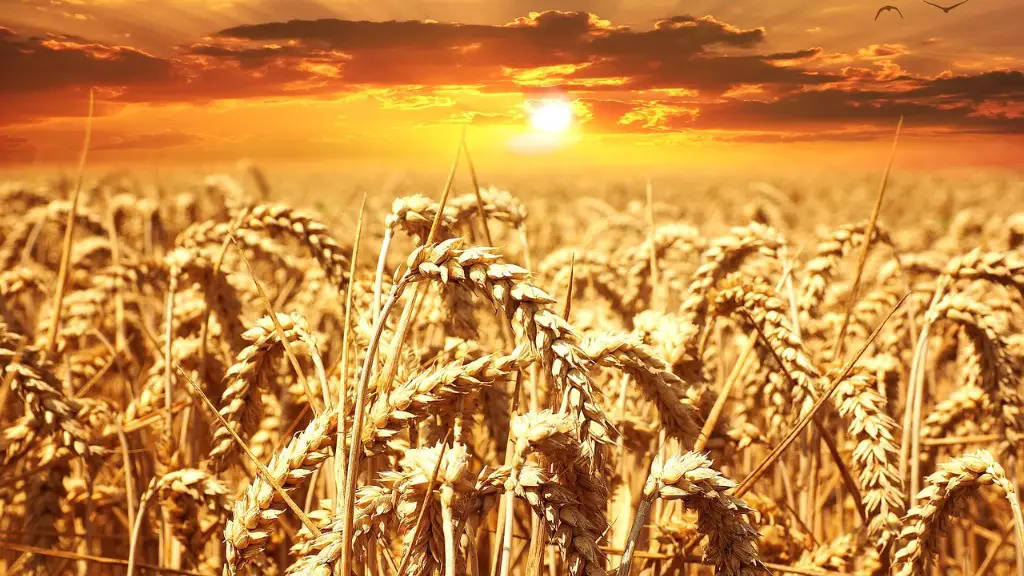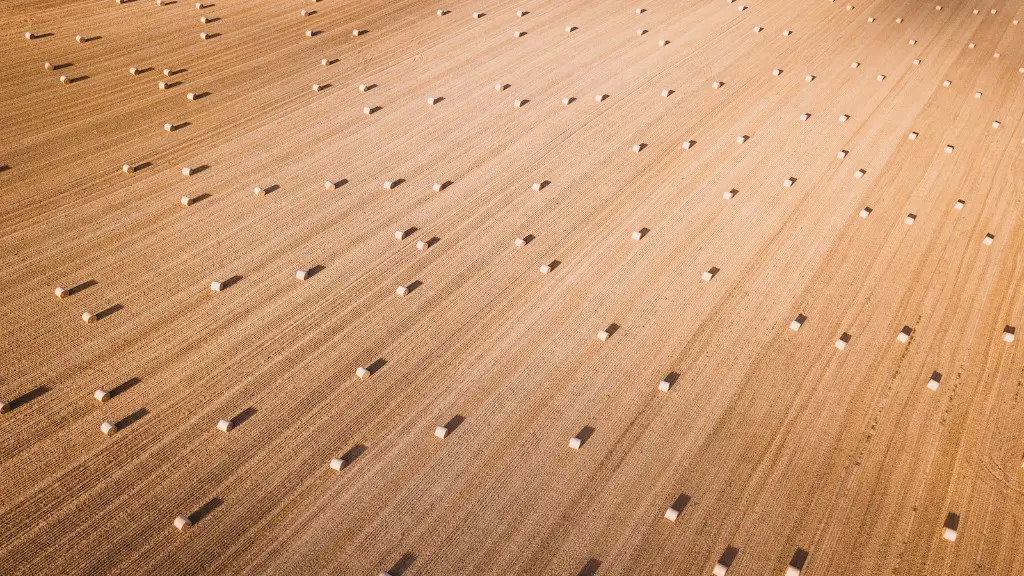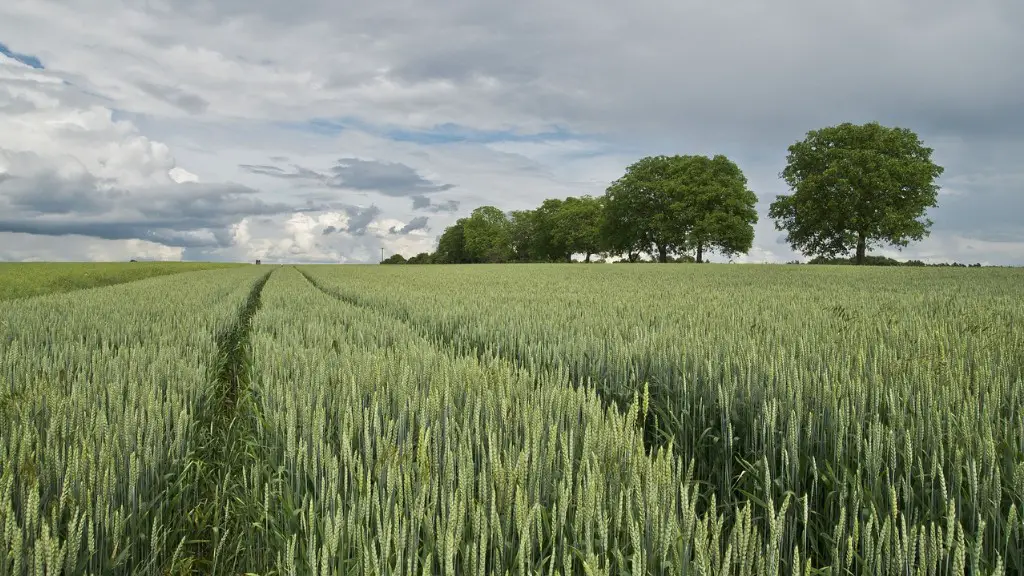In agriculture, composting is the process of breaking down organic matter, such as plants and food scraps, into a nutrient-rich soil amendment. Compost can be used to improve the fertility of farmland, provide a natural way to control crop pests and diseases, and reduce the need for synthetic fertilizers and pesticides.
Composting in agriculture is the process of decomposing organic matter, such as crop residues, manure, and other biodegradable materials, into a natural fertilizer that can be used to improve the quality of soil. Composting not only reduces the volume of organic waste, but also improves the nutrient content of the soil and the water-holding capacity of the soil.
What is the meaning of composting in agriculture?
Composting is a great way to reduce the amount of waste that goes to landfills. By composting organic materials, we can create a nutrient-rich soil amendment that can be used in gardens and farms. Composting also helps to reduce greenhouse gas emissions by reducing the need for synthetic fertilizers.
Composting is an effective way to reduce waste and create a nutrient-rich soil amendment or mulch. The process is aerobic, meaning it requires oxygen, and controlled in order to produce the best results. The end product is compost – a dark, crumbly, earthy-smelling material that is excellent for use in gardens or other landscaping projects.
What are the 4 types of composting
Compost is a type of decomposed organic matter that is used as a soil amendment or fertilizer. Farmyard manure is another type of organic matter that is often used as a fertilizer or soil amendment. Green manure is a type of manure that is used to add nutrients and organic matter to the soil. Vermicompost is a type of compost that is made from worms and other decomposing organisms. Each type of compost has its own set of benefits that can help improve the health of your soil.
Composting is a great way to reduce your waste and help your garden! By composting your organic waste, you are providing nutrients for your plants and helping to reduce pollution.
What are the 3 stages of composting process?
Composting is a great way to reduce waste and create a useful product. It is important to understand the different phases of composting in order to create optimal conditions. The first phase, the mesophilic phase, lasts for a couple of days. During this phase, moderate temperatures are ideal. The second phase, the thermophilic phase, can last from a few days to several months. This phase requires high temperatures. Finally, the third phase is a several-month cooling and maturation phase. This phase is important for the final product. By understanding the different phases of composting, you can create optimal conditions for your compost pile.
Composting is a great way to save money and reduce your impact on the environment. It recycles home waste, conserves water, and improves soil structure. Composting also reduces garden pests and is an ideal exercise.
What are the 3 types of compost?
Composting is a process of breaking down organic material into a more nutrient-rich substance. This process can be done aerobic (with oxygen), anaerobic (without oxygen), or vermicomposting (with worms). Each method has its own benefits and drawbacks, so it’s important to choose the one that’s best for your needs.
There are two types of composting – fast acting and passive. Fast acting composting can take 4-6 months, while passive composting can take 6-12 months. The time it takes to compost depends on the type of material you are composting and how fine it is.
Why is composting so important
Composting is an important way to reduce the need for pesticides and synthetic fertilizers. By enriching the soil and promoting healthy plant growth, plants grown in compost-rich soil tend to be more resilient to diseases, pests, and fungi. This means that they require less use of these potentially harmful chemicals, which can be damaging to the environment and human health.
Direct composting is a great way to get started with composting, and it is also one of the most effective methods. However, there are some limitations to consider when using this method. First, it can be difficult to dig a hole or trench in the ground, especially if you have a lot of scraps to compost. Second, this method may not be suitable for all types of scraps. For example, if you are composting chicken bones, they may not decompose properly in the ground. Finally, this method may not be suitable for all climates. If it is very hot or very cold in your area, the compost may not decompose properly.
What is the fastest thing to compost?
Different materials break down at different rates. Some materials, like wood and leaves, are high in lignin, which makes them more difficult to compost. Other materials, like grass clippings and shredded paper, compost a lot faster. To speed up the composting process, it helps to add easily digestible materials to the mix.
Composting is a great way to reduce your solid waste and provide a nutrient-rich amendment to your soil. To start your compost pile, follow these simple steps:
1. Lay twigs or straw on bare earth, a few inches deep.
2. Add compost materials in layers, alternating between moist and dry ingredients.
3. Add manure, green manure (clover, buckwheat, wheatgrass, grass clippings), or any other nitrogen source.
4. Keep compost moist, but not too wet.
5. Turn compost pile every few weeks to aerate and promote decomposition.
6. Compost is ready to use when it is dark and crumbly.
What Cannot be composted
Do not compost plastic or plastic-coated products as they will not break down. Bioplastics and styrofoam will also not break down and should not be composted. Oil should only be composted in small amounts as it can inhibit the breaking down of other materials. Meat, bones and dairy should not be composted as they can attract pests and create unpleasant odors. cooked food should not be composted as it can attract pests and create unpleasant odors.
Composting is a great way to reduce your impact on the environment and recycle your food waste. Here are some tips to make sure your composting is successful:
-Follow the composting 1-2-3 rule: for every one part of green (food waste), add two parts of brown (dry leaves, shredded paper, etc.).
-Provide air and water to your compost pile. Chop up your food waste into small pieces to speed up the process.
-Pile size matters if you want your compost to heat up. A bigger pile will generate more heat, resulting in faster composting.
-Use a rodent-resistant bin for food scraps if you have animals who like to rummage through your garbage.
How long does compost last?
You can store compost indefinitely, but the longer it’s stored, the more nutrients it loses. Compost is at its best for three to four months after it is completed. However, compost can be used even after that. Over time, the nutrients in the compost break down further or escape the compost.
With composting, it’s important to have a clear vision of the end goal in mind. This will help you to better understand the entire process and make better decisions along the way. Most of our clients use their finished compost back on their pastures or in their gardens. Others see themselves selling their compost to cover some of their operating expenses. No matter what your end goal is, having a clear vision will help you to better achieve it.
Final Words
Composting in agriculture is the process of breaking down organic materials into a rich soil amendment. This process recycles nutrients and improves soil structure, providing numerous benefits for crops and plants.
Composting is an important process in agricultural systems because it helps to recycle organic matter and nutrients back into the soil. This process can help to improve soil health, improve crop yields, and reduce the need for artificial fertilizers. Composting also helps to reduce waste and greenhouse gas emissions.
